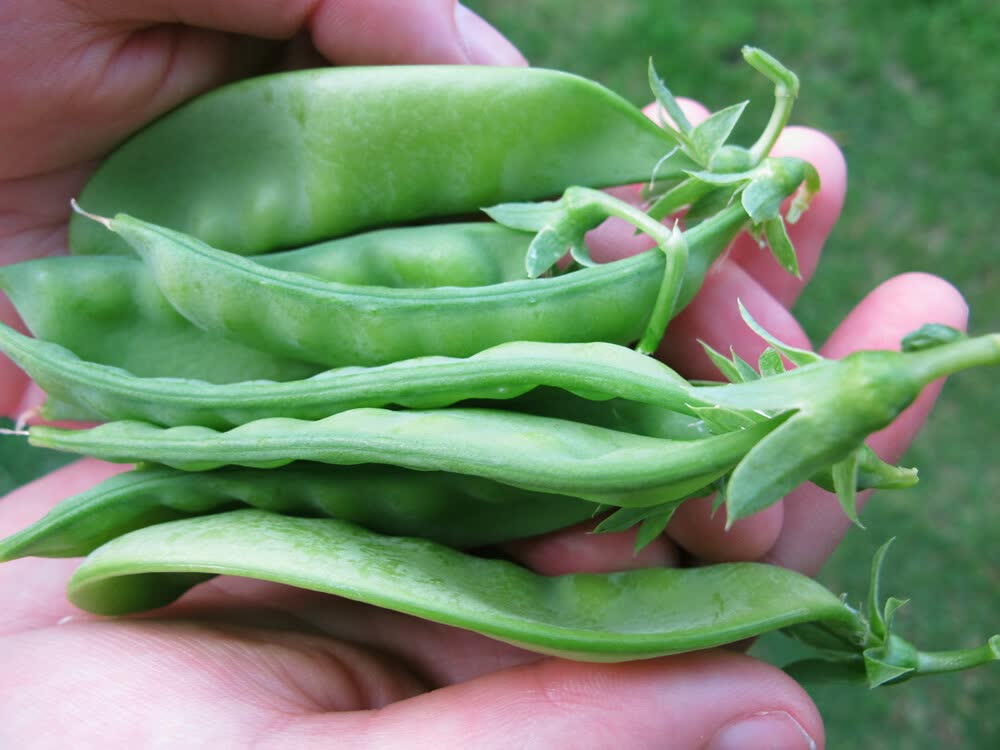
Snow Peas, also known as mangetout, are a fantastic crop to grow. Kids love them - in fact if you have kids and don’t grow enough, there is a risk that few will be left for the dinner table. They are beautiful picked and then eaten immediately!
What Climate is Best for Snow Peas
I live in the sub-tropics and grow them year round, however; there is no doubt that yields are best during the cooler months - you should get good results during autumn, winter and spring.
The Best Soil For Snow Peas
All peas don’t like too much moisture. It is therefore important that the soil drains well. Heavy clay soils will need breaking up, but you should have success with most other soil types.
A pH of 6.5 is best for growing peas, so if your soil varies significantly from this, you will need to adjust it accordingly.
CompanionPlants for Snow Peas
Snow Peas grow well with all Brassicas - brocolli, cauliflower, cabbage and brussell sprouts.
How to Plant Snow Peas
I have had by far the most success by sowing seeds directly into the ground where I want them to grow. Sow the seeds approximately 2 to 3cm deep and about 10cm apart. I would recommend that rows are about 1m apart - particularly in warmer climates, peas are susceptible to fungal diseases. It is therefore important to ensure that there is good airflow between the plants - don’t overcrowd them.
Germinating seeds in punnets and then transplanting the seedlings is less successful - young seedlings are very delicate and do not always respond well to transplanting.
Harvesting Snow Peas
As always; the best part, and in this instance a very easy part. Simply pick when they are ready for you to eat - enjoy! Seriously though, the pods can be picked and eaten at any stage of their development, but most people pick the pod when it has become firm and crisp, but before the peas inside have fully formed.

Other things to Consider:
- Expect them to grow at least 1.8m high - they will need support in the form of some type of trellis.
- Don’t over-water them.
- I think that they are beautiful to eat. Unfortunately the local King Parrots agree with me! Keep an eye on them - you may need to “net” them to protect them from birds.
- All pea plants are legumes. This means that with the aid of specialised bacteria, they “fix” their own nitrogen. Therefore, when the plants have finished cropping, dig them back into the soil - this will help replenish nitrates in the soil.
Finally, If you sow new seeds every 4 to 5 weeks, you should have snow peas for the dinner table all year round.
Some Useful Videos
I am an educator and passionate gardener and traveler. Throughout my adult life, gardening has been my passion, therapy, drive and source of purpose. Even as a child I had an intrinsic interest in plants and a desire to understand what makes them grow.
I distinctly remember the moment this began - my family was on one of our regular road trips from Hervey Bay; Australia. We were driving past a field of sugar cane. Dad pulled the car over and we cut a couple of sugar cane stems and brought them home for a treat. To be honest, I didn’t really like the taste, but I did want to try and grow it; and that is exactly what I did. It was then that my fascination, interest and passion for gardening and understanding plants began.
Fast forward a few years and I studied biological sciences and began what would be a 36 year career as a Biology educator. From this, I don’t only love gardening, but I also love helping others learn about gardening. I am also always looking for new ways to develop my own gardening knowledge. I like to think I am truly a life-long learner.
Fundamental to my beliefs about education is that learning is often best done as a part of a community - learning from others, and helping others to learn. It is this type of community that I hope iCultivate will be for its members - a community of gardeners, keen to share their gardening knowledge and wanting to learn about new ways to garden - a community built on the love of gardening.











Get involved!
Comments